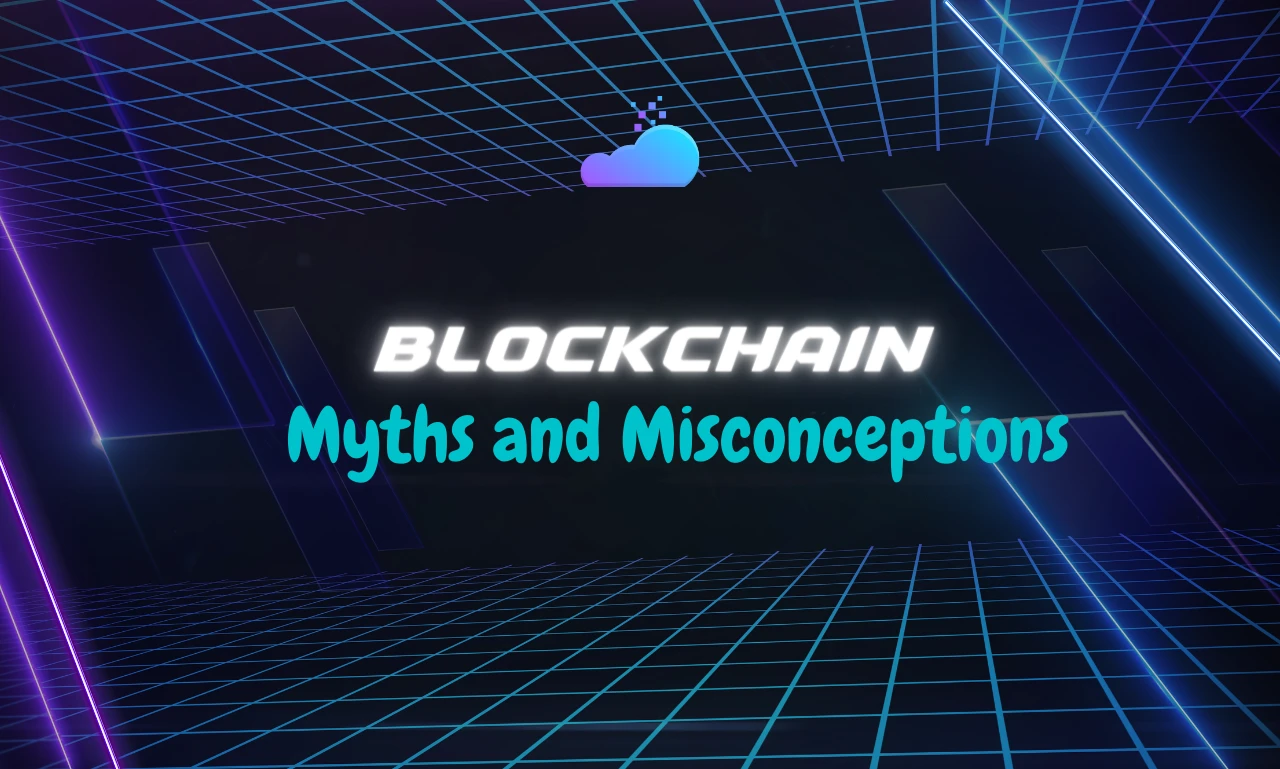Blockchain Myths and Misconceptions: Separating Fact from Fiction
Blockchain is an emerging technology with a lot of misconceptions surrounding it. To clear up the confusion, let's debunk some myths about blockchain.

Blockchain technology has taken the world by storm in recent years with its potential applications spanning numerous industries and use cases. However, despite its growing popularity and adoption, there are still many myths and misconceptions about what blockchain is and what it can do. In this article, we'll be separating fact from fiction and debunking some of the most common myths about blockchain.
What is Blockchain
Let's start with a quick definition. Simply put, blockchain is a decentralized, digital ledger that uses cryptography to record and verify transactions. It allows multiple parties to securely and transparently share and access data without the need for a central authority.
Now that we have a basic understanding of what blockchain is, let's dive into some of the myths that have been circulating about this revolutionary technology.
Myth #1: Blockchain is only used for cryptocurrencies
One of the most persistent myths about blockchain is that it is solely used for cryptocurrencies like Bitcoin. While it's true that blockchain technology was initially developed as the underlying infrastructure for Bitcoin, it has since evolved and found numerous other applications beyond the world of digital currencies.
In fact, blockchain has the potential to revolutionize industries ranging from supply chain management to healthcare to voting systems. By providing a secure, decentralized platform for data sharing and verification, blockchain can streamline processes, reduce costs, and increase transparency.
Myth #2: Blockchain is completely secure and immune to hacking
Another common myth about blockchain is that it is completely secure and immune to hacking. While it's true that the decentralized nature of blockchain makes it more secure than traditional systems that rely on a central authority, it is not completely foolproof.
Like any technology, blockchain systems can be vulnerable to attacks if proper security measures are not in place. For example, some blockchain platforms have suffered from what are known as "51% attacks," where a group of malicious actors gain control of more than half of the network's computing power and use it to manipulate the ledger.
It's important to remember that while blockchain technology is extremely secure, it is not invincible. It is crucial to take steps to protect blockchain systems from potential vulnerabilities.
Myth #3: All blockchain platforms are the same
Another common misconception is that all blockchain platforms are the same. In reality, there are two main types of blockchain platforms: public and private.
Public blockchain platforms, like Bitcoin and Ethereum, are open to anyone and are decentralized, meaning that they are not controlled by any single entity. Private blockchain platforms, on the other hand, are closed systems that are typically owned and operated by a single organization.
While both public and private blockchain platforms have their own unique characteristics and use cases, they are not interchangeable. It's important to understand the differences between the two and choose the right platform for your specific needs.
Myth #4: Blockchain is a fad and not here to stay
Despite its relatively recent emergence, some people still see blockchain as a passing trend that is not here to stay. However, the growing adoption and investment in blockchain technology suggests otherwise.
In recent years, major corporations and government agencies have begun exploring and implementing blockchain solutions for various use cases. The World Economic Forum estimates that by 2027, up to 10% of global GDP could be stored on blockchain technology. And, the survey estimates that taxes will be collected for the first time by a government via blockchain by 2023.
It's clear that blockchain is here to stay and is only going to continue gaining traction in the coming years.
Myth #5: Blockchain is only useful for large corporations
While it's true that large corporations have been at the forefront of blockchain adoption, it's important to note that this technology is not just limited to big business. In fact, small businesses and individuals can also benefit from the many uses of blockchain.
For example, small businesses can use blockchain to streamline supply chain management, reducing costs and increasing efficiency. Individuals can use blockchain-based platforms to securely store and transfer data, such as medical records or legal documents.
In short, blockchain technology has the potential to benefit people and businesses of all sizes, not just large corporations.
Conclusion
Blockchain technology is a complex and rapidly evolving field, and it's not surprising that there are many myths and misconceptions surrounding it. By understanding the true capabilities and limitations of blockchain, we can better take advantage of its many benefits and use it to its full potential.
Whether you're a small business owner, an individual, or a large corporation, it's important to stay informed and educated about the latest developments in blockchain technology. With a better understanding of this revolutionary technology, we can work towards a more secure, efficient, and transparent future.